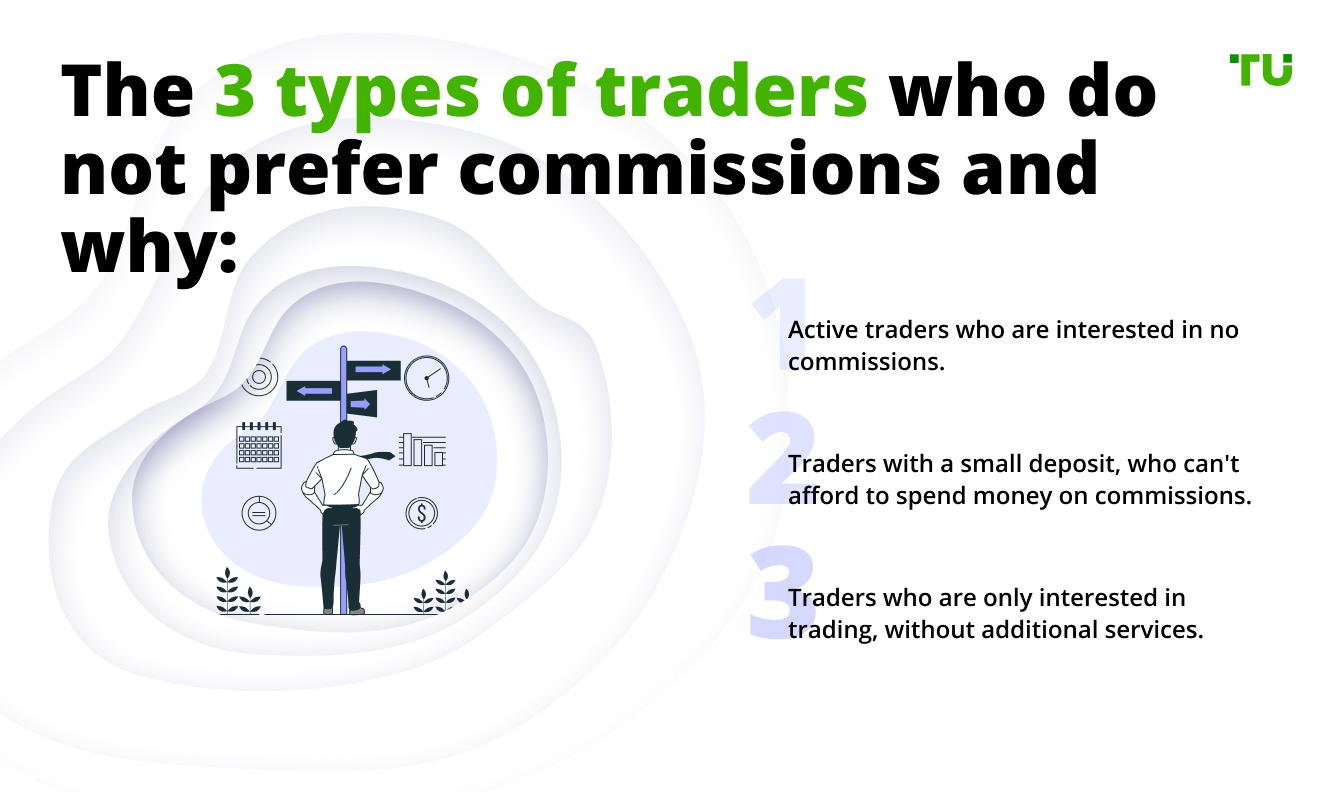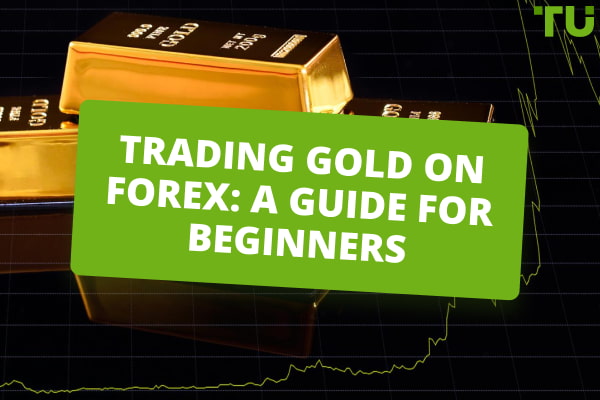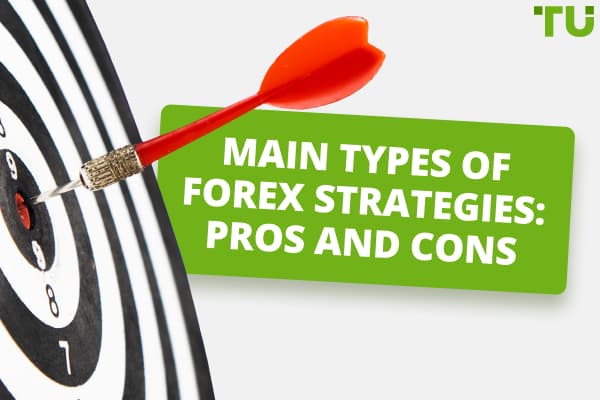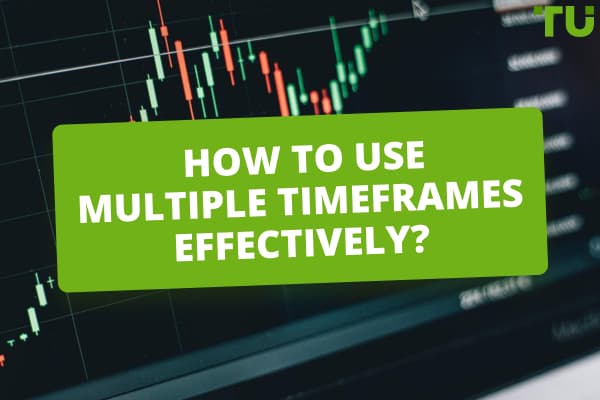I’ve been trading with Webull for over 2 years. No commissions give me more money in my pocket and the mobile-based platform is great for securing positions while I’m travelling.
7 Best Discount Brokers For Low-Cost Trading In 2024

Best Discount Broker For Low-Cost Trading - eToro
Top Discount Brokers For Low-Cost Trading:
-
1
eToro - best for novice and professional traders
-
2
Degiro - best for European traders
-
3
eOption - best for Options Trading
-
4
Interactive Brokers - best for Experienced traders
-
5
TradeStation - best for Education
-
6
Webull - best for Mobile traders
-
7
Robinhood - best for Zero fee trading
For beginners and those that want to trade with minimal amounts, it’s important to limit expenses - as high costs can decrease your chance of profiting from your trades.
The team at Traders Unions did extensive research to find the lowest cost brokers that are still safe and reliable to use. We looked at a long list of discount brokerages, compared them to each other, considered how their fees compared and narrowed things down to a list of six options. This discount brokers list is a great starting point if you do not want to pay too many fees, but still, give yourself a fair opportunity to profit.


What Are Discount Brokers?
The term “discount brokers” has become quite popular recently, especially among those who consider themselves at least relatively new to the world of online trading. Before we dive into our list to help you find out who the best discount stock brokers are, we first want to look at the term and explain what it really means.
Standard brokers charge a fee for the transactions you initiate on the network. If you make a deposit or withdrawal, there is a fee charged for the transaction performed. When you initiate a trade, then you pay a commission fee. Sure, the fees seem low when considering how much is charged per trade - but over time, these fees count up and become a larger sum of money. This is money that you would have gained as profit for yourself.
A discount broker is generally a platform that gives you access to trading features but without charging a lot of fees. In fact, a large number of these brokerages will give you access to $0 trades. In this case, it means you can trade pairs on the network without paying commission for every transaction you make.
There are pros and cons when it comes to opting for a discount broker. To reduce expenses on their side, many of these brokerages will not be able to offer advanced educational resources. Features on the platform may also be limited. This, however, does not account for all companies, as some are still impressive while offering zero commission trading options.
7 Top Discount Brokers List
| Broker | Best for | Fees Rating | Region |
|---|---|---|---|
| Broker | Best for for novice and professional traders |
Fees Rating 5/5 |
Region International |
| Broker | Best for European traders |
Fees Rating 4/5 |
Region Europe |
| Broker | Best for Options Trading |
Fees Rating 4/5 |
Region US |
| Broker | Best for Experienced traders |
Fees Rating 3/5 |
Region International |
| Broker | Best for Education |
Fees Rating 3/5 |
Region US |
| Broker | Best for Mobile traders |
Fees Rating 4/5 |
Region International |
| Broker | Best for Zero fee trading |
Fees Rating 5/5 |
Region International |
How To Pick The Right Discount Broker
With an increasing demand for cheaper brokers, we’ve also seen more companies offer affordable options - often promoted toward beginners. Sure, it’s useful to have a large selection of platforms to choose from, but you do need to make sure you know what to look for.
In this section, we give you a quick rundown of the facts to consider before you choose a specific discount brokerage.
Reviews And Ratings:
Always consider what people are saying about the platform. Make sure the company is trustworthy. Try to steer away from companies that have a lot of bad reviews behind their name, or you may find yourself in situations that previous customers have already complained about.
Fees:
Just because a company promotes itself as a discount brokerage doesn’t mean it is your best option when looking at a cheap platform. Make sure you look at all the fees charged for trades, inactivity, transfers, and maintenance.
Platform:
Consider the trading platform used by the company. Most companies will give you access to both web and mobile trading platforms. Make sure the platform is easy to navigate and use.
Withdrawal And Deposit:
Consider the options for depositing and withdrawing money. Make sure the company supports your preferred methods.
Support:
When you need help, you don’t want to wait weeks for a reply. Thus, take a look at the customer support options that are available. Make sure you can easily reach a consultant through chat, phone, or email - and that they actually respond to your queries. A live chat function is always useful to have. Take a look at the operating times too and consider the timezone used by the company.
The Best Discount Brokers In 2024
While there are many brokers that offer discounted or no trading fees, not all of them are equal when it comes to quality, services, and support. After a significant amount of research, we compiled a list of six discount brokers that stand out among the rest. Below, we share some useful information about each of these brokers to help you make the right choice.
eToro - Ideal for Social and Copy Trading
eToro stands out as a unique platform offering social trading experiences, ideal for those who wish to engage in community-driven investment strategies. The platform is tailored to both beginners and seasoned traders, with an easy-to-use interface and the innovative "CopyTrader" feature that allows users to mirror the trades of successful investors.
Members can choose from a diverse selection of assets, including stocks, cryptocurrencies, and commodities. Though there's no membership tier system like Interactive Brokers, some users might find eToro's spreads and withdrawal fees on the higher side.
Overall, with more than 2,000 financial instruments and a community of millions of traders, eToro presents an engaging way to invest and learn from peers, making it an attractive choice for those interested in a more collaborative trading experience.
Degiro - Best For European Traders
There are several reasons why people in Europe consider Degiro to be one of the best brokerages in the area. The company has a very low fee structure and there aren’t too many hidden costs that you should be concerned about. This is always a great feature when it comes to looking at discount brokers.
Degiro is also regulated. In fact, there are several authorities considered to be top-tier who regulate the services at Degiro. This greatly increases the trust of the brand. Degiro also comes with both a mobile and a web-based trading platform.
There are no inactivity fees to pay. No deposit fees are charged and there is no minimum account balance that needs to be maintained. Degiro also gives you access to $0 withdrawal options, which saves you money when requesting funds from your account.
On the other hand, it should be noted that Degiro does not offer standard forex pairs on their trading platform. There are also no deposit options for bank cards, but rather only support for making a deposit with an online wallet.
eOption - Best For Options Trading
eOption is a low-cost broker regulated by FINRA. The broker was established in 2007 with a focus on providing quality services in the US options market. The commissions in the options market will certainly please the clients, as they will have to pay nominal 10 cents per contract. The broker offers an excellent trading platform for options trading, which represents a combination of simple use and a great set of professional market analytics.
The broker also offers zero commission US stock and ETF trading, with the feature being available for all clients, regardless of the trading volume.
Novice traders will be happy to learn that eOption has no minimum deposit, offers a free trading platform and professional support ready to come to your rescue at any time.
Interactive Brokers - Best For Experienced Traders
Interactive Brokers is a feature-rich platform that gives you access to advanced functions. The platform is generally advised for traders who are more experienced. No minimum account balance helps to offer more control over how much money you want to leave in your profile. Interactive Brokers have two plans to choose from, including Lite and Pro.
The Pro membership gives you access to a wider range of features but does come with a monthly cost. The monthly fee is determined based on your trading volume.
By opting for the Lite membership, you don’t have to worry about any monthly fees and you get unlimited free trades on the pairs that are available to this membership level. There are more than 8,300 pairs that can be traded without paying any transaction fees. Volume discounts are available on certain transactions, which can also help to minimize transaction charges on your side.
TradeStation - Best For Education
Those who are still new to trading will appreciate the features offered by TradeStation. The platform is divided into two membership types. Beginners and those looking for a discount broker will benefit from the GO membership. This account type requires no minimum account balance and has no minimum deposit. ETF trading is commission-free, regardless of how many trades are made. There are fees that you need to pay for stock and options trading, but on a GO membership, these fees are relatively low. If you trade with stocks, then there are no fees associated with the first 10,000 shares you buy.
The platform has an annual fee associated with its use. Thus, it is generally advised for those who are more active. You can trade cryptocurrency on the TradeStation platform, and the company gives you access to a variety of futures.
Webull - Best For Mobile Traders
Webull has become quite a well-known name in the stock market. The company is trusted by many traders - beginners and experts alike. One of the top features that make Webull stand out is the effort that was put into the development of their mobile trading tools. With more people focusing on trading from their smartphones, this company has ensured that customers are able to gain easy access to all of Webull’s features from anywhere. Among competitors, Webull is also a platform that has some of the lowest fees available on the market. There are no account minimums that customers need to worry about and trades can be initiated without paying any fees. The customer also gets two free stocks when they fund their account for the first time. Furthermore, Webull also allows you to gain access to cryptocurrency pairs, which expands your opportunity when trading online. In addition to cryptocurrency, Webull allows you to trade stocks, EFTs and options too.
Robinhood - Best For Zero Fee Trading
Last on the list is Robinhood, the ideal platform for people who do not want to pay any fees when initiating a trade. Stocks, ETFs, options, and cryptocurrency pairs can be traded at a $0 commission fee, regardless of the account type. The platform has three account levels available, ranging from a brokerage account up to a margin account.
There are no annual fees payable and your account does not go into the red if you are inactive. Robinhood has no ACH transfer fees, but they do charge for outgoing ACAT transfers.
Robinhood offers a mobile app that allows you to trade from anywhere. There are several customizable settings that allow you to set up alerts and a custom news feed on your smartphone. The news feed offers data from WSJ Markets, CNBC Business, Cheddar, Reuters, and Barron’s all together - giving you more data to research and find the next investment opportunity on the platform.
Best Discount Brokers Comparison
Now that we have taken a closer look at each of our selected brokerages above, it is time to compare them to each other. We are focusing on discounted brokers in this post, which is why our primary focus here is to deliver a comparison based on fees that you will pay when trading with the brokerage.
| Broker | Account Minimum | Stock Trading Costs | Options Trading Costs |
|---|---|---|---|
| Broker | Account Minimum $0 |
Stock Trading Costs $0 |
Options Trading Costs $0.1 per contract |
| Broker | Account Minimum $0 |
Stock Trading Costs $0 (Lite); $0.005 per share (Pro) |
Options Trading Costs $0.65 per contract |
| Broker | Account Minimum $0 |
Stock Trading Costs €0.004 per share, plus €0.5 per contract |
Options Trading Costs €7.5 + 0.1% of trade value. There is a 0.2% annual fee that applies as well. |
| Broker | Account Minimum $0 (GO); $2,000 (SELECT) |
Stock Trading Costs $0 (only up to 10,000 shares) |
Options Trading Costs $0.50 per contract |
| Broker | Account Minimum $0 |
Stock Trading Costs $0 |
Options Trading Costs $0 |
| Broker | Account Minimum $0 |
Stock Trading Costs $0 |
Options Trading Costs $0 |
| Broker | Annual Fee | Inactivity Fee | Transfer Fee |
|---|---|---|---|
| Broker | Annual Fee $0 |
Inactivity Fee $0 |
Transfer Fee Up to $50 |
| Broker | Annual Fee $0 (Lite); $10 - $20 (Pro) |
Inactivity Fee $10 |
Transfer Fee Up to $50 |
| Broker | Annual Fee 0.2% on tech fund holdings |
Inactivity Fee $0 |
Transfer Fee $0 |
| Broker | Annual Fee $35 |
Inactivity Fee $50 |
Transfer Fee Up to $125 |
| Broker | Annual Fee $0 |
Inactivity Fee $0 |
Transfer Fee Up to $75 |
| Broker | Annual Fee $0 |
Inactivity Fee $0 |
Transfer Fee Up to $75 |
| Broker | Stocks | ETFs | Options | Crypto |
|---|---|---|---|---|
| Broker | Stocks Yes |
ETFs Yes |
Options Yes |
Crypto No |
| Broker | Stocks Yes |
ETFs Yes |
Options Yes |
Crypto No |
| Broker | Stocks Yes |
ETFs Yes |
Options Yes |
Crypto No |
| Broker | Stocks Yes |
ETFs Yes |
Options Yes |
Crypto Yes |
| Broker | Stocks Yes |
ETFs Yes |
Options Yes |
Crypto Yes |
| Broker | Stocks Yes |
ETFs Yes |
Options Yes |
Crypto Yes |
Hidden Fees You Should Consider
The primary idea behind a discount broker is to pay very little or no commission fees when trading on the platform. While zero-fee trades are great, you should not only look at this as a potential cost behind your trading activities. There are certain “hidden fees” that people often overlook when they find a company that offers commission-free trading. In this section, we want to take a closer look at these hidden fees - allowing you to determine whether a specific broker is truly as affordable as they claim to be.
Here is an overview of some of the “hidden fees” that you should look out for when choosing a discount broker:
Inactivity Fees:
Many people do not realize this, but some brokers actually charge you money when your account becomes inactive. This can sometimes lead to high charges on your account - which could even exceed what you might have paid if there was a commission fee payable on your trades.
Maintenance Fees:
There are some discount brokers that avoid losses on their side by charging maintenance fees. These fees are associated with your account. The broker may charge these fees on a monthly or annual basis. It is generally not advisable to opt for a broker that charges maintenance fees.
Withdrawal Fees:
While some brokers offer free or low-cost withdrawal options, others may limit methods to some of the more expensive choices. The broker may also charge additional fees on their side for processing the withdrawal request.
Margin Fees:
While margin fees generally do not apply to beginners, it is still something to take into consideration. Margin fees are charged when money is borrowed from the broker. The money is used to initiate an investment on the broker’s platform. Interest is charged on this money, which is where margin fees come into the picture.
Certificate Fees:
Online trading offers digital proof of your assets. If you are looking for longer-term investments, you might prefer having a physical copy that provides evidence of the assets you own. In these cases, you may ask the broker to mail a physical certificate to you. This can be costly - with most brokers charging a minimum fee of $500 for the certificate and postage.
Learn how to reduce the cost of trading commissionOther Important Metrics To Consider
Fees are the main consideration among people looking to find a great discount brokerage. When you are on a low budget or you want to avoid paying a lot to the brokerage, then it is only natural to look at these factors. On the other hand, failure to look at other factors related to the brokerage could lead to disappointment.
With this in mind, make sure you understand what other factors you should first look at before deciding on a specific broker.
You want to specifically consider the services offered by the broker. The services that you gain access to differ significantly between the brokers that you can choose from. With a discount broker, you may find that services are sometimes a bit restricted - but this does not account for all of these service providers.
Here are a few factors that you might want to consider while choosing a discount broker, apart from the fees:
-
Are there any tools that can be used to perform research on available markets?
-
What trading platforms does the broker give you access to?
-
Is the broker’s trading platform mobile friendly? Many people are adopting the mobile-first internet experience, which means you might want to continue trading when you are not home.
-
Take a closer look at the margin leverage offered by the broker.
-
Take note of the payment systems used by the brokerage. You want to ensure you can utilize both the deposit and withdrawal methods that are available.
Pros & Cons of Discount Brokers
Discount brokers have transformed the trading landscape by making investing more accessible to the general public. However, they come with their own set of advantages and drawbacks.
👍 Pros
•Low Costs: They typically offer lower fees and commissions compared to full-service brokers.
•Accessibility: User-friendly platforms suitable for both new and experienced traders.
•Independence: Allows for independent trading, enabling users to make their own investment decisions.
👎 Cons
•Limited Support: Often lack personalized advice and customer service.
•No Extras: May not offer additional financial services or research tools that full-service brokers provide.
What Is the Difference Between a Full-Service Broker and a Discount Broker?
Understanding the differences between full-service brokers and discount brokers is essential for investors to make an informed choice according to their preferences and needs.
Services Offered
Full-service brokers provide a comprehensive range of services, including personalized investment advice, research reports, tax planning, and estate management. They often assign a dedicated financial advisor to each client to create tailored investment strategies. Discount brokers, on the other hand, primarily offer a platform for buying and selling securities. While they may provide basic research tools and educational resources, they generally don't offer personalized investment planning or financial consultations.
Fee Structure
The fee structure of full-service and discount brokers is another significant difference. Full-service brokers charge higher fees and commissions to cover the extensive array of services and personalized attention they provide. This may include a percentage of assets under management or a fixed annual fee.
Discount brokers, by contrast, charge lower fees and may even offer commission-free trades on certain assets. They can afford to do so because they provide fewer services and often rely on a high volume of trade to generate revenue.
Target Clientele
Full-service brokers typically target high-net-worth individuals, institutions, or those who seek personalized guidance and are willing to pay for a full range of financial services. Their clients often expect a more hands-on, relationship-based approach.
Discount brokers, in contrast, cater to individual investors who prefer to manage their own portfolios and are looking for cost-effective ways to trade. They may be appealing to both new and experienced traders who prioritize low fees and basic trading functionalities over comprehensive financial planning and advice.
In essence, the choice between a full-service and discount broker boils down to an individual’s preferences, investment knowledge, and the kind of relationship they seek with their financial intermediary.
Methodology
To bring you a list of the best discount brokers you can choose from in 2023, we had to consider several factors. We started by compiling a list of the cheapest brokers out there - considering both account fees and trade commissions. The list was quite extensive, but the goal of our post is to help you decide on the best choice. Thus, we had to narrow down our list to bring out only the platforms that are worth trying out.
Here’s a quick overview of the steps we followed to single out six of the best discount brokers:
-
1
We started by looking at reviews from users. This was done by scouting for websites that allow the general public to comment on business services and products. We were able to find reviews and mentions on these platforms, as well as social media networks. We ruled out companies that didn’t seem to have a good record of trust and reliability among current users.
-
2
We then investigated each of the brokers that were left on the list. We looked at several factors, such as commission fees on trades, the variety of commodities and other options that are available for trading, and region support. We also considered minimum deposits, payment options, and costs associated with general transactions.
-
3
Our final step was to take a closer look at the customer support offered by each of these brokers. Even when a broker seems trustworthy, you always want to make sure that you can reach someone when needed. We considered support channels and how long it takes for a customer care consultant to get back to the user.
Summary
The idea of a discount broker feels convenient, allowing you to initiate trade positions often with no fees attached. While these opportunities seem attractive, do thorough research. There are often hidden fees that you may overlook, which could account for large expenses in the long run.
The discount brokers in our list are trusted among even the most experienced traders, yet offer cheaper transaction and account fees when compared to many of the competitors.
Reviews

Paul’s Murray, 32
Trader
New York
Robinhood has become my go-to broker for crypto trades. It’s easy to initiate a trade, even when I'm on the move. A $0 account minimum also gives me more control and fewer restrictions.

Joe’s Berry, 48
Beginner Trader
Los Angeles
Easily the best online trading service for anyone in Europe. Degiro gives me access to a range of commodities, which has helped me expand my portfolio - which ultimately helps me limit my risks.

Sarah’s Wood, 27
Investor
London
FAQ
Which brokers are cheaper?
There are a few brokers that offer $0 commission on trades that you initiate, but it is important to consider other fees that may be charged. For zero-fee trading, consider Robinhood. If you need an on-the-go option that’s also cheap, Webull might be the solution for you.
Are discount brokerages safe?
It really depends on the specific institute that is in question. Many discount brokers have a trusted record - look at Webull, Robinhood, Interactive Brokers, and other options we shared, for example. These brokers payout on time and have a lot of features to explore.
How do I choose a good discount broker?
Don’t automatically opt for a specific broker just because they are the cheapest. Look at real reviews from customers who used the platform before. Consider the deposit and withdrawal options, and make sure the company is able to give you access from your location.
What do discount brokers do?
Many discount brokers are able to keep their fees low as they only help you initiate trade positions, without providing a large range of support channels or education. Some companies do still focus on customer service, education, and other related factors even when they have discount trading options available. These companies will often make up for low commission fees in other departments, such as premium membership offers.
Team that worked on the article
Chinmay Soni is a financial analyst with more than 5 years of experience in working with stocks, Forex, derivatives, and other assets. As a founder of a boutique research firm and an active researcher, he covers various industries and fields, providing insights backed by statistical data. He is also an educator in the field of finance and technology.
As an author for Traders Union, he contributes his deep analytical insights on various topics, taking into account various aspects.
Dr. BJ Johnson is a PhD in English Language and an editor with over 15 years of experience. He earned his degree in English Language in the U.S and the UK. In 2020, Dr. Johnson joined the Traders Union team. Since then, he has created over 100 exclusive articles and edited over 300 articles of other authors.
The topics he covers include trading signals, cryptocurrencies, Forex brokers, stock brokers, expert advisors, binary options. He has also worked on the ratings of brokers and many other materials.
Dr. BJ Johnson’s motto: It always seems impossible until it’s done. You can do it.
Mirjan Hipolito is a journalist and news editor at Traders Union. She is an expert crypto writer with five years of experience in the financial markets. Her specialties are daily market news, price predictions, and Initial Coin Offerings (ICO). Mirjan is a cryptocurrency and stock trader. This deep understanding of the finance sector allows her to create informative and engaging content that helps readers easily navigate the complexities of the crypto world.

















